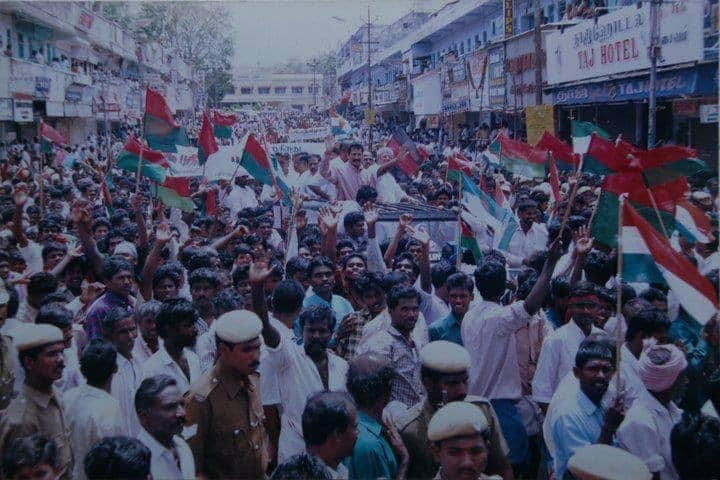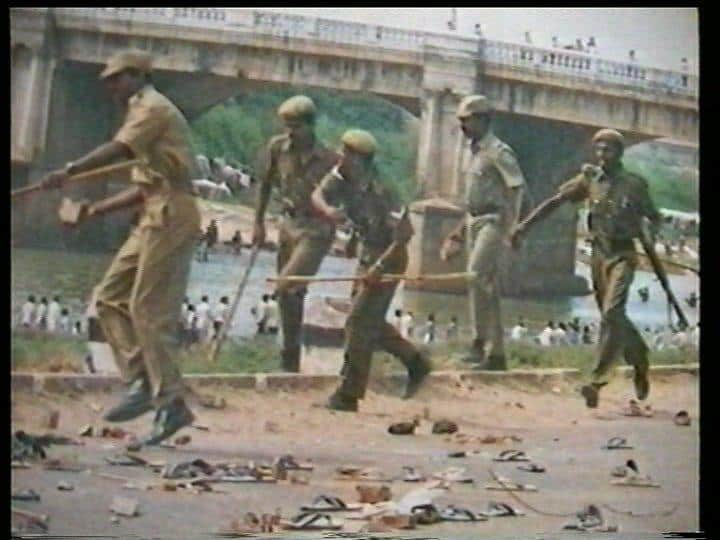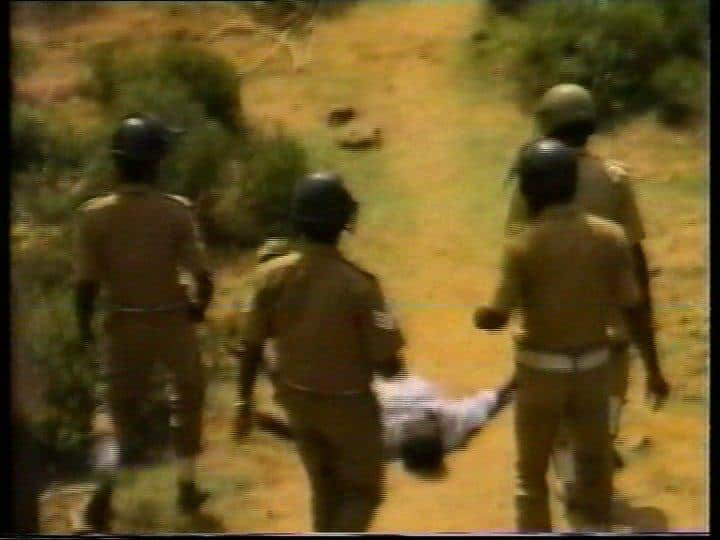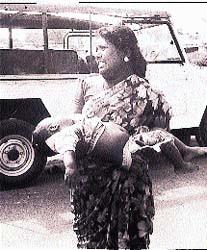The plight of the tea estate plantation workers at the Manjolai Hills near Tirunelveli was nothing less than distressing. They were paid a meagre daily wage of ₹70 with backbreaking working conditions. The estate owners forced them to stay in sheds with poor facilities. They were denied the right to rear cattle or even raise a garden. Various protests were organized demand better wages and working conditions and many estate workers were arrested.
To protest against the administration’s apathy towards the inhumane conditions, a large number of tea estate workers from Manjolai congregated in Tirunelveli and marched towards the Collectorate on 23rd July 1999 to submit a memorandum demanding better wages and for the release of 652 workers arrested earlier for staging a demonstration on June 8, 1999. Around 5000 people reportedly participated in the procession. They had also obtained police permission for the protest. The procession was led by S. Balakrishnan of Tamil Maanila Congress (TMC), President of Puthiya Tamizhagam Dr. Krishnaswamy, and a few leaders from the Communist parties (CPI and CPI-M). What followed was a massacre.

TN’s Jallianwala Bagh
The procession was stopped 50 metres away from the main gate of the collectorate by the police officers. The leaders had tried to negotiate with the police officers to let them submit the petition. But the Deputy Commissioner of Police Shylesh Kumar Yadav rejected their protest. Meanwhile, a section of the crowd tried to enter the premises through another entry point via the Tamirabarani river bank. Noticing this, the police unleashed violence on the protestors from all sides. Apart from lathi charging and shooting in the air, the police pelted stones and bricks on the crowd.


Like how the helpless crowd jumped into the well at Jallianwala Bagh when General Dyer opened fire, the panic stricken men and women ran and towards the river bank and jumped into the Tamirabarani river. The police too jumped into the water and gave severe blows. Some of the police attacked even those who were trying to rescue people from drowning while a few other policemen crossed the bank to continue their attack. Seventeen people lost their lives including two women and a 2 year old child.

DMK’s sins
The bodies of the victims were buried in a hurry under tight security on July 28.
Concerned about their fate in the next elections that was to be held in September and October 1999, the DMK government under M. Karunanidhi sought to placate the public anger by immediately appointing a single member commission under retired district judge K. Karthikeyan. Cases against the 652 workers who were kept in Tiruchirapalli Central Prison arrested were withdrawn and were released on July 28.
On the previous day (July 27), Karunanidhi in a statement blamed the workers for instigating violence. He belittled their demands saying that all problems have been solved except the demand related to “half a day’s wage”. The worker had demanded the withdrawal of 50% cut in their daily wages which the management had imposed over the past four years.
They had also demanded for the suspension of police officers and a judicial inquiry by a sitting judge of the High Court. The DMK government appointed a retired Supreme Court judge S. Mohan to probe the incident. However, the demand for suspension of officers and a new post-mortem on the victims were rejected.
Families of those who died were given compensation in monetary terms while a few others were provided with jobs. However, last year the V Palani, the then CPM district secretary had told TOI that the victims got compensation and not justice.
Even today this incident evokes the tragic memories amongst the Manjolai tea estate workers.